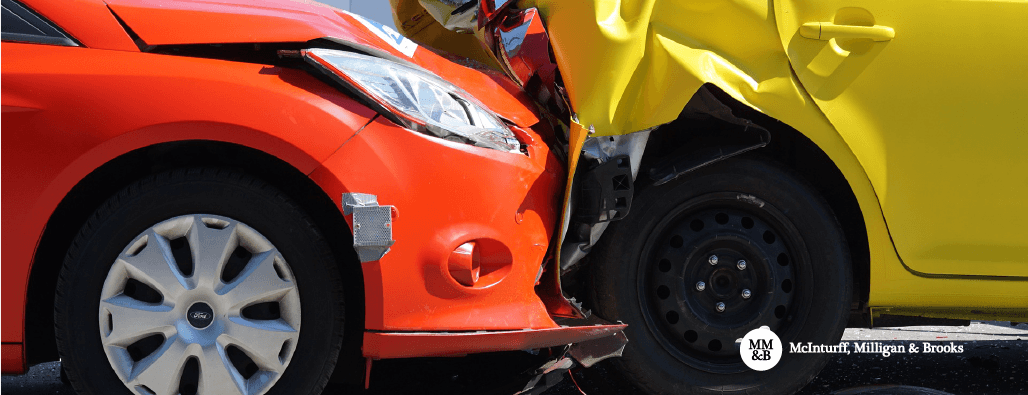- May 30, 2018
- Posted by: MMB
- Category: Personal Insurance

✅ License
✅ Registration
✅ Insurance
Every driver in America needs those 3 things to operate a moving vehicle. These items (or the proof of them) often rest untouched in our wallets or glove compartments, and hopefully that’s where they stay, unneeded. But, accidents happen. According to the National Highway Traffic Safety Administration, in 2016 there were over 7.2 million motor vehicle accidents in the United States. No matter how minor, car accidents can be scary, and the aftermath can be messy. In the shock of the moment, it can be tough to think clearly. Do you know what steps to take after a car accident? What about your teen driver?
Here’s what to do in the event of a car accident
1. Assess the Situation
Whether you’ve experienced a fender bender or were part of a 5 car pile-up, car accidents are an unpleasant experience. The sudden impact tends to catch most people off guard, which can lead to missed steps.
First and foremost determine the severity of the situation. Are you or the other party in immediate danger? Does someone require medical assistance? Safety is the first priority, so first, determine if an ambulance needs to respond to the accident. If the situation doesn’t require EMS services, then your next step is to contact the police. They may advise you to move your car out of the way of traffic, and they’ll help you through the next immediate steps. They can also write an accident report and gather witness statements.
2. Exchange Information
You’ll need the following information from the other party:
- Name, address, and contact info (in the event of a hit-and-run, try to record their license plate number)
- Insurance company and policy information
- Documentation of the accident (Statements from witnesses and pictures of the accident are recommended)
It’s technically the responsibility of the driver responsible for the accident to report it to their insurance company. However, even if you are the victim, it’s important to contact the insurance company responsible for handling the claim to ensure the entire incident is taken care of properly. The more evidence and documentation you have, the easier it will be to process the insurance claim.
3. Contact the Insurance Companies
You will need to provide all documentation and evidence to the insurer who will handle the claim. This is where the information gathered by yourself and the information documented by the police will be vital. When speaking about the accident, only provide the facts. Regardless of who you believe is at fault, the evidence and reports will determine who is responsible.
4. Manage the Damage
Understanding the extent of the damage inflicted can be tricky. What a police officer determines is minimal damage, a body shop may say requires a few thousand dollars in repair costs. In some cases, you may want to seek documentation from a second opinion before covering the excess charges out of your pocket.
If you are the victim, you’ll need to inform the responsible party’s insurer of the damages and injuries accumulated from the accident so they can cover the costs of repairs or medical assistance. However, most insurances require authorization before they will cover any costs. If you get your car fixed before confirming the repair with the insurance company, it could create some problems. If possible, request proof of the accepted liability before moving forward with repairs.
Car accident claims can get messy quickly. Whether you are the responsible party or the victim, it’s important to be transparent with your insurance company so they can help file, process, and/or defend your claim if necessary.
5. Follow-Up With Your Insurer
To understand the full extent of your policy coverage and the effects of the accident, you need to contact your insurance agent. They are the experts who will help you process the situation and determine your next steps. An insurance agent will also help you understand things like whether or not your car insurance rate will be affected after an accident or how much compensation you may receive from a settlement.
Hopefully, you and your loved ones never experience a car accident – but instead of taking that chance, take the proactive approach. Continue to stay up to date with your insurance agent, review your policy and coverage, and make sure you and those you care about know what to do in the event of a car accident.
To learn more about car insurance in Tennessee or Virginia, or to find the best policy for you, contact McInturff, Milligan & Brooks via the form below or at (423) 639-5171.
Contact Us
We would love to hear from you! Please fill out this form and we will get in touch with you shortly.
